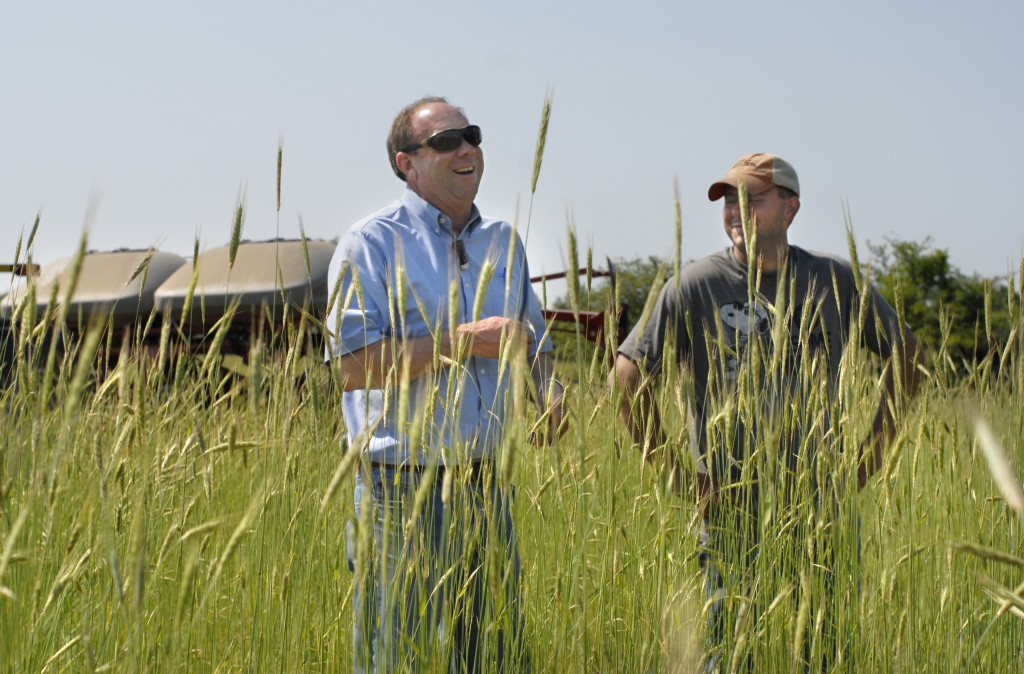
PHOTO BY CLARE HOWARD
Major changes in agriculture are occurring throughout central Illinois as farmers shift away from chemicals and toward organic practices. Here farm manager Rob Woodrow, left, checks as soybeans are planted into a field of cereal rye that is then crimped five times, forming a thick mulch mat that suppresses weeds as the organic soybeans grow. Now in its second year transitioning to organics, this field had only three small clusters of weeds and none of the super weeds taking over chemical fields. Woodrow, who manages about 40,000 acres of farmland in Illinois, Wisconsin, Minnesota and Iowa with his partner in Farmland Solutions LLC, expects more of his clients will transition to organic so he makes a point of studying new as well as proven research in organic crop production.
